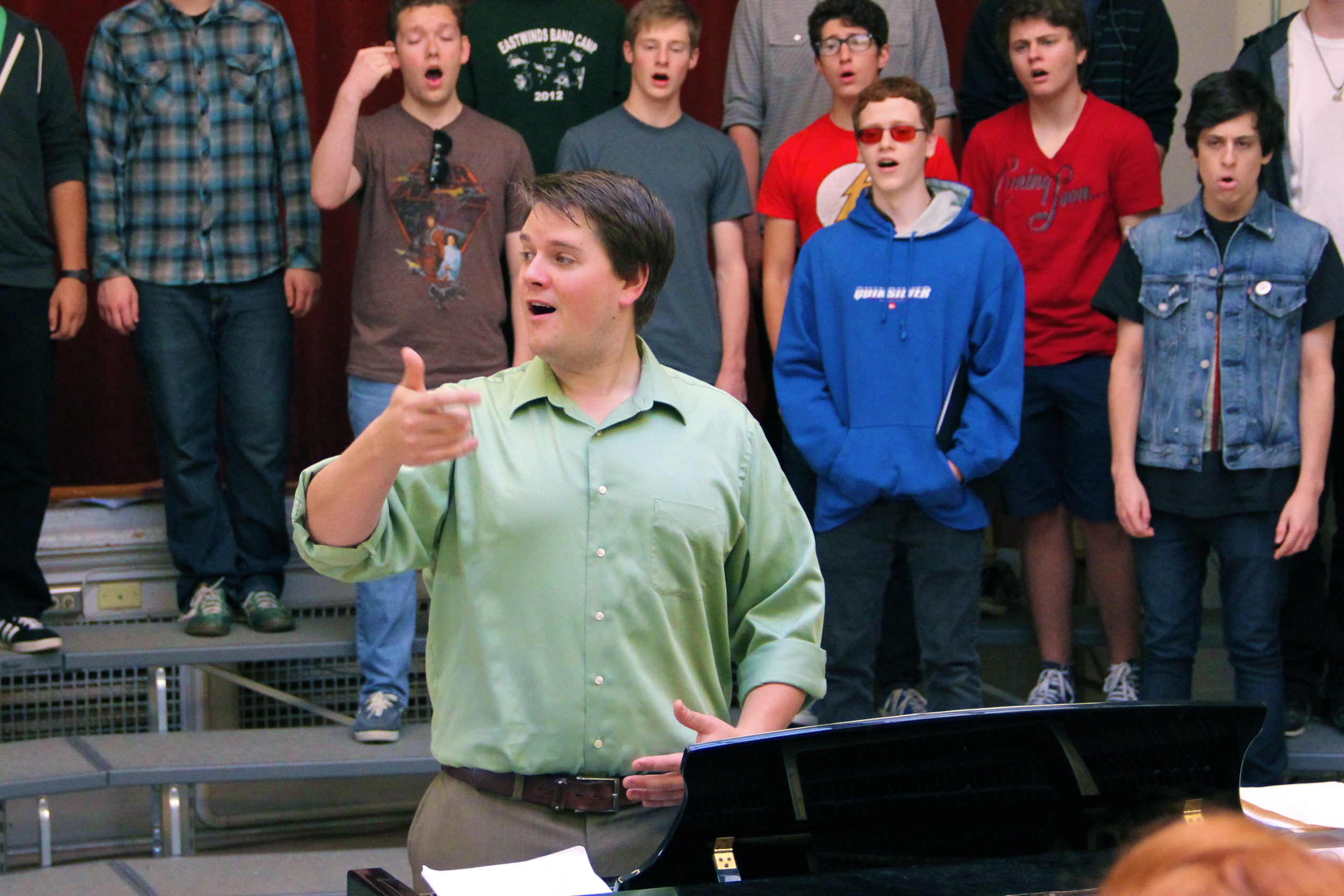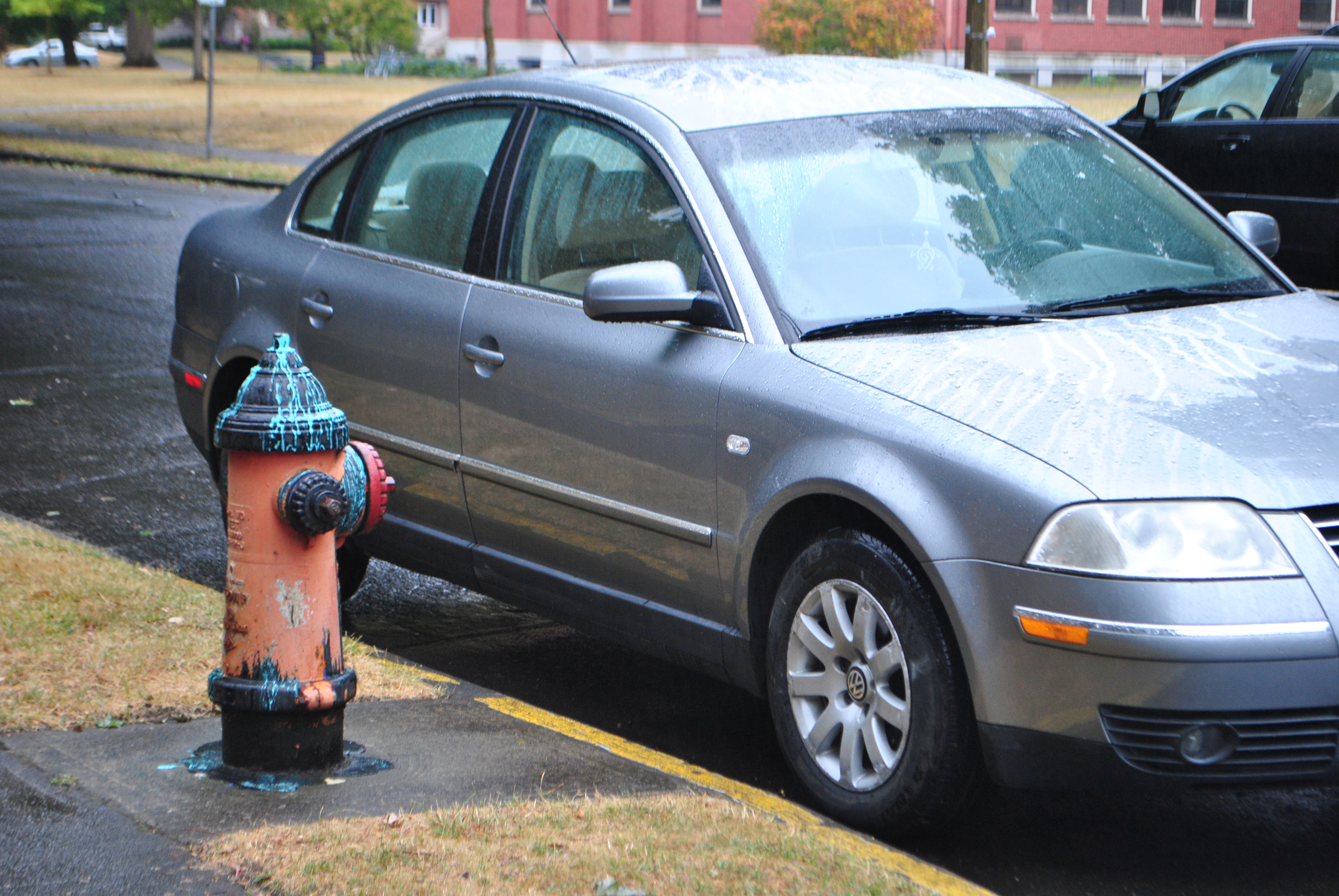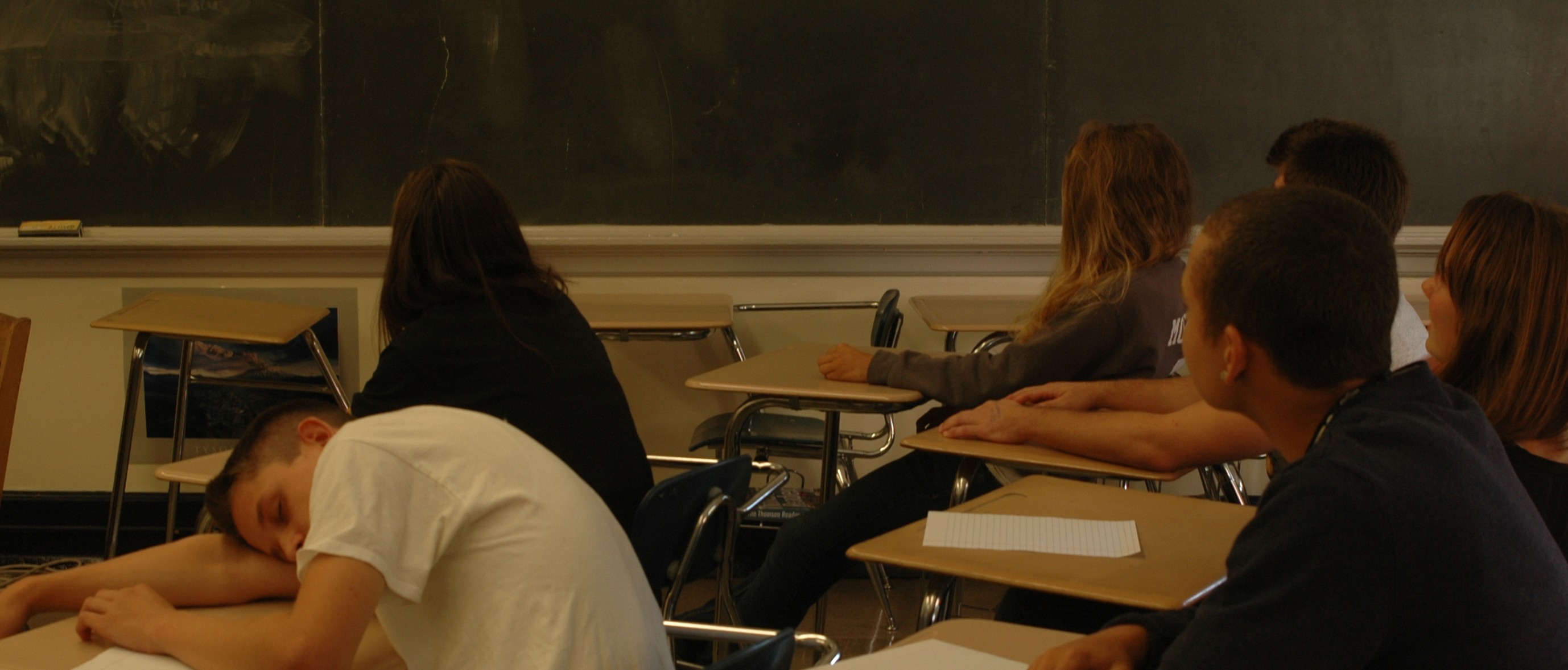
Last year on Armed Forces Day, senior Andrew Wheeler woke up and decided it was finally time for someone to remember. For months, Wheeler had been working up enough courage to do what he was about to do.
He walked to his bathroom and, staring into the mirror, began to apply black and green paint to his face. Inside his closet, Wheeler dug through his vast collection of military gear before selecting the right outfit: a frayed Vietnam era jungle jacket, combat helmet with a camouflage cover and jungle boots. After getting ready, he drove for 20 minutes to the Oregon Military Museum where he talked to passersby about the Vietnam War, hoping to start a change.
“Vietnam is a forgotten war,” he says. “Nobody wants to think about it. Nobody is proud of our Vietnam veterans.”
Wheeler, 17, collects Vietnam era military gear and, once a year on Armed Forces Day, he dresses up to educate the public on Vietnam.
He grew up around history books. For 17 years, his father has been writing a novel on the Battle of the Bulge, the last German offensive move in World War II. For Wheeler growing up, there would be many open books scattered on the floor. “Before I could read them, I could look at the pictures,” he says. “I asked my dad questions, and I’m sure his patience was tried. But he was and still is great with all my inquires, and he is the primary reason I started collecting.”
When he was seven, Wheeler received a 1942 first-aid pouch from his father. It was the first thing in his collection. “Look after this,” Wheeler remembers his father saying. Even though Wheeler knows the pouch is a really generic piece of equipment, he says, “it was my first thing, so it’s worth a lot to me.”
For Wheeler, the pouch is a connection to the past. “It was something that made these things I had been seeing in pictures real,” he says. “And I could actually hold something that had possibly been in combat.”
 Slowly Wheeler acquired more artifacts, and the piles of pouches, canteens and suspenders grew on his closet shelves. But freshman year, he realized that he was collecting only for the monetary value of items; his first pouch remained the only thing he cared about. “I hadn’t really been collecting for the right reasons,” Wheeler says. “I needed to switch gears and start collecting stuff that I could actually care about on an emotional level.”
Slowly Wheeler acquired more artifacts, and the piles of pouches, canteens and suspenders grew on his closet shelves. But freshman year, he realized that he was collecting only for the monetary value of items; his first pouch remained the only thing he cared about. “I hadn’t really been collecting for the right reasons,” Wheeler says. “I needed to switch gears and start collecting stuff that I could actually care about on an emotional level.”
In addition to collecting Vietnam gear, Wheeler has a few helmets and jackets from World War II, but for him they’re just not the same. “With Vietnam,” he says. “I hold that jacket and it has cuts and frays, and it’s not perfect. But it has a story and emotion and something when I hold it goes that extra mile.”
Both of Wheeler’s grandfathers fought in World War II, and his grandfather Edward Wheeler – who fought with the 28th Division – saw serious action. “He was something,” Wheeler says. After being wounded and put up for the Purple Heart, Edward Wheeler turned the award down knowing other soldiers were wounded worse than he was. “He had an amazing military career, I say amazing mingled with how horrible it was,” Wheeler says of his grandfather.
He died when he was 62. Wheeler says his grandfather drank himself to death.
The memory of his grandfathers, his dad and even his cousin who also collects militaria influence Wheeler. “I wouldn’t care about Vietnam if I didn’t have this extraordinary set of coincidences that got me to pursue this hobby,” he says.
The Vietnam War had a mandatory draft. Of the 26.8 million men who were eligible for the draft between 1964 and 1973, 2.2 million were drafted while 8.7 million joined voluntarily, according to Chance and Circumstance: the Draft, the War, and the Vietnam Generation, a 1978 book by Lawrence M. Baskir and William A. Strauss.
Vietnam was to many an illegal war, and the first actively resisted by Americans. During Vietnam, many shifts occurred in American war integrity. In World War I and II, there were defined battle lines and prison camps. In Vietnam, there were no battle lines and troops secretly entered non-combat areas at their own peril. If they were caught, they’d likely be shot and killed.
The conflict also marks a change in the way Americans regard their veterans. When World War II veterans returned to America at the end of the war, everyone was there to celebrate. “When Vietnam men stepped off the plane, nobody was there waiting for them, nobody was playing the horn for them,” says Wheeler.
This year, history teacher David Lickey is teaching a Vietnam History class. Lickey recognizes the transition in Americans’ feelings toward their veterans: “People were personally morally devastated by the experience of fighting a difficult war,” Lickey says. The veterans “damaged and traumatized, come home to a society that was also damaged and traumatized by the experience and not in the mood to support or find a place for them. And that was one of the miseries of Vietnam.”
Lickey chose to teach the Vietnam class because the Vietnam conflict was “a pure national tragedy on every level. It provides huge opportunities for values clarification around issues that are the most import: life, death, the role of our nation in the World.”
So what happens when we forget about Vietnam? David Horowitz, a professor of U.S. culture and political history at Portland State University, says: “The lesson of why it’s important to relate to the issue of Vietnam is that citizens, in order to be really functioning adults have a duty to evaluate what their government is doing.” To fulfill our duty, this generation must remember.
Every year when Wheeler dresses up in his Vietnam clothes at the Oregon Military Museum, he wants to be a “sore thumb” among all the World War II re-enactors. “I wanted to be there with my face paint on and my grimy jacket, and just be there for the Vietnam veterans and finally represent them,” he says.
Science teacher Brick Street was drafted into the Army when he was 18 to go to Vietnam. Deciding to go into the navy instead, Street was stationed at the Gulf of Tonkin in visual communications. Street had a lot of friends that died in the Vietnam conflict. “Part of the thing that makes me mad about that is that there were kids my age, 18 or 19, that didn’t get the vote at the time,” Street says. “They died for an unjust war. A bunch of power hungry people calling the shots from behind the lines while the kids died.”
Street appreciates Wheeler for what he’s doing. “I think its great,” he says.
To get Grant students involved, Wheeler is starting a Military History Club that will convene to watch and discuss war movies. “In my mind its time that we be proud of our Vietnam veterans and what they fought for,” he says.




